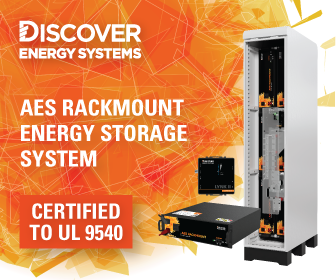IKEA to Grow Renewable Portfolio with Fuel Cell System for Generating More Onsite Power at Store in New Haven, CT
IKEA, the world's leading home furnishings retailer, announced plans to further the Swedish retailer's renewable commitment with plans for its first biogas-powered fuel cell system on the east coast, at its store in New Haven, CT. More than a year ago, IKEA completed installation of such a project at IKEA Emeryville, one of the Swedish company's two San Francisco-area stores. And, earlier this summer, IKEA announced plans for similar projects at four additional California stores. Pending permits, the New Haven fuel cell system will be installed, commissioned and operational by this Fall, bringing the IKEA fuel cell portfolio to more than 1.5 MW.
"We are excited about furthering our sustainability commitment with fuel cells at IKEA New Haven," said Christof Stein, store manager. "Similar to our rooftop solar array, this fuel cell system will greatly reduce our carbon footprint and the store's reliance on the power grid as well as contribute to our vision of creating a better everyday life for the many."
Slightly larger than the physical size of a commercial back-up generator, the 250-kw, biogas-powered project will produce approximately 2,081,376 kWh of electricity annually for the store, the equivalent of reducing 1,218 tons of carbon dioxide (CO2) - equal to the emissions of 233 cars or to providing electricity for 163 homes yearly (calculating clean energy equivalents at www.epa.gov/energy/greenhouse-gas-equivalencies-calculator). Combined with the 940.8-kW solar array installed atop the store in 2012, the fuel cell project will help generate a majority of the store's energy onsite.
For the design, development and installation of this fuel cell system, IKEA contracted with Sunnyvale-based Bloom Energy a provider of breakthrough solid oxide fuel cell technology generating clean, highly-efficient on-site power.
Drawing from its Swedish heritage and respect of nature, IKEA strives to minimize its operations' carbon emissions because reducing its environmental impact makes good business sense. IKEA evaluates locations for conservation opportunities, integrates innovative materials into product design, works to maintain sustainable resources, and flat-packs goods for efficient distribution. U.S. sustainable efforts include: recycling waste material; incorporating key measures into buildings with energy-efficient HVAC and lighting systems, recycled construction materials, warehouse skylights, and water-conserving restrooms; and operationally, no plastic bags in the check-out process, and selling only LED lighting. IKEA U.S. has installed electric vehicle charging stations at 14 stores and solar arrays at 90% of its locations, integrated two geothermal projects at two store locations and owns two wind farms. This investment in fuel cell technology reflects the company's goal to be energy independent by 2020.
Located on 20 acres near the I-95/I-91 interchange, the 311,000-square-foot IKEA New Haven opened July 2004 and features 10,000 exclusively designed items, 48 different room-settings, three model home interiors, a supervised children's play area, and a 350-seat restaurant serving Swedish specialties such as meatballs with lingonberries and salmon plates, as well as American dishes. Other family-friendly features include a 'Children's IKEA' area in the Showroom, baby care rooms, play areas throughout the store and preferred parking.
IKEA | www.IKEA-USA.com











